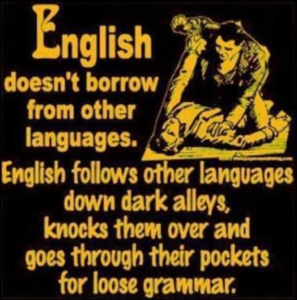reo pakeha me nga tuhinga
You never know how strong you are until being strong is your only choice.
– Bob Marley
te ao Māori principles
There are five key principals that we as an English Department consider important as part of a holistic study at school. Please read through these and know that we will come back to them as we begin looking at texts.
- Kaitiakitanga: Guardianship of natural resources and elements of sustainability
- Rangatiratanga: Leadership, authority, Mana, empowerment, Respect
- Manaakitanga: The process of showing respect, generosity and care for others.
- Whanaungatanga: A relationship through shared experiences and working together which provides people with a sense of belonging.
- Tikanga: The customary system of values and practices that have developed over time and are deeply embedded in the social context.
Key Terms
|
written works, especially those considered of superior or lasting artistic merit. |
|
the principal method of human communication, consisting of words used in a structured and conventional way and conveyed by speech, writing, or gesture. |
Learning Objectives
- Identify your own language
- Articulate the difference between literature and language
- Introduce the course
Exercises
Spelling
| generous | shadow | competitive | communication | horror | exploit |
| afraid | permit | expand | persuade | vast | lecture |
| afterwards | occasional | palace | register | traffic | inner |
| household | publisher | fraud | symbol | definitely | steel |
| substance | cutting | panic | golden | relevant | technical |
Pangram
Remember, to become faster at writing, you should practise writing out the following phrase as many times as possible for 5 minutes.
If handwriting: At this stage, focus on the clarity of each letter to ensure you can write legibly (so it can be easily read)
If typing: Practise the skill of touch typing so you look at the screen rather than at your hands as they type.
- The quick brown fox jumps right over the lazy dog.
Rationale
Welcome to this short unit on introducing the key concepts of English Language and English Literature.
Key Terms
Language: the principal method of human communication, consisting of words used in a structured and conventional way and conveyed by speech, writing, or gesture.
Literature: written works, especially those considered of superior or lasting artistic merit.
English Language really looks at the way that we communicate with each other using the medium of English. That can be:
- Written
- Spoken
- Presented
- Heard
Each of these areas must be mastered to be a true communicator in English. That is the aim of English over the next five years: to make you a master of communicating.
What is English?
The following are some questions that are to be answered in your book. You should write out both the question, and your answer.
- In your own words, what do you think English is?
- What do you think are the reasons that English is a subject that you have to study until (and including) Year 12?
- What jobs do you think use the skills taught in English, everyday?
- What language(s) do you speak in your personal life and with whom do you speak this language(s)? NB: You may have many for grandparents, friends, cousins etc etc.
- Which of the three strands (written, oral and visual) in English appeal to you, and how do they appeal?
For these next questions you may like to get help from an adult that you know – a parent or guardian, a teacher, an extended family member, a family friend, an elder from your faith etc etc.
Language around us
- Which country were you born in?
- What country were your parents born in?
- Find the names of important creators in the following categories from either your, or your interviewee’s homeland.
- Poetry
- Novel Writers
- Filmmakers
- A Drama (Play) Writer
- A Singer / Songwriter / Musician
- If you can, find a copy of one of the creator’s works that you have identified in question 3. It does not matter if it is in another language. Bring it into school and share why it is such an important part of that culture.

Ko te reo te tuakiri | Language is my identity.
Ko te reo tōku ahurei | Language is my uniqueness.
Ko te reo te ora. | Language is life.